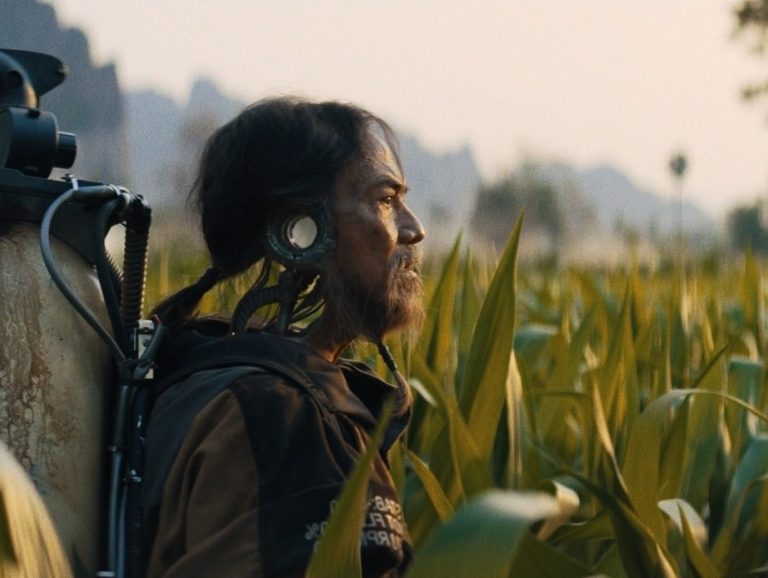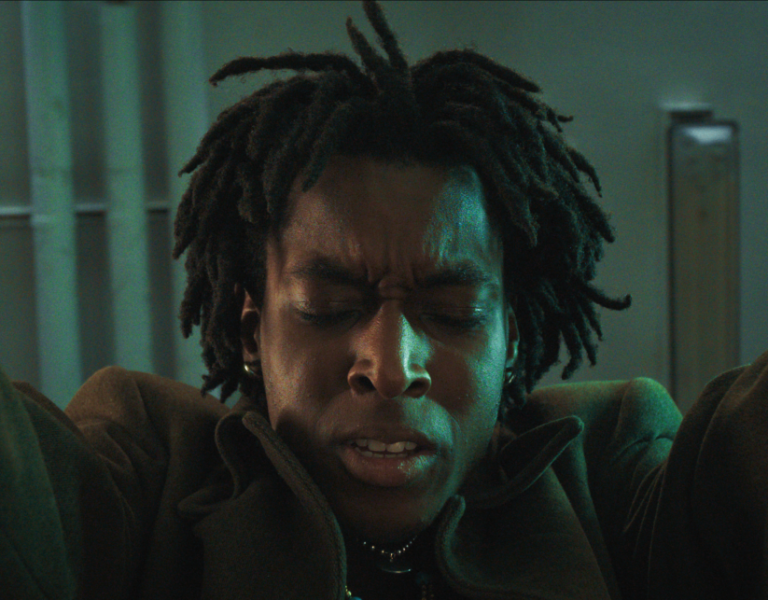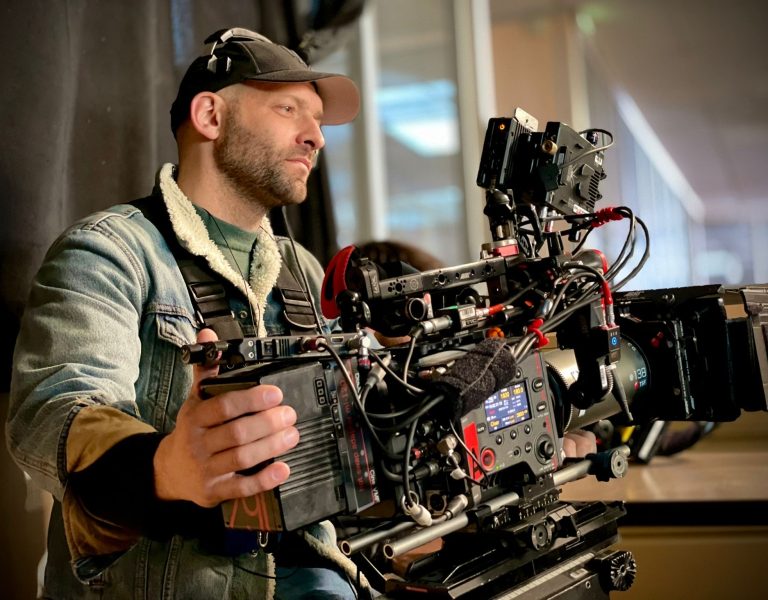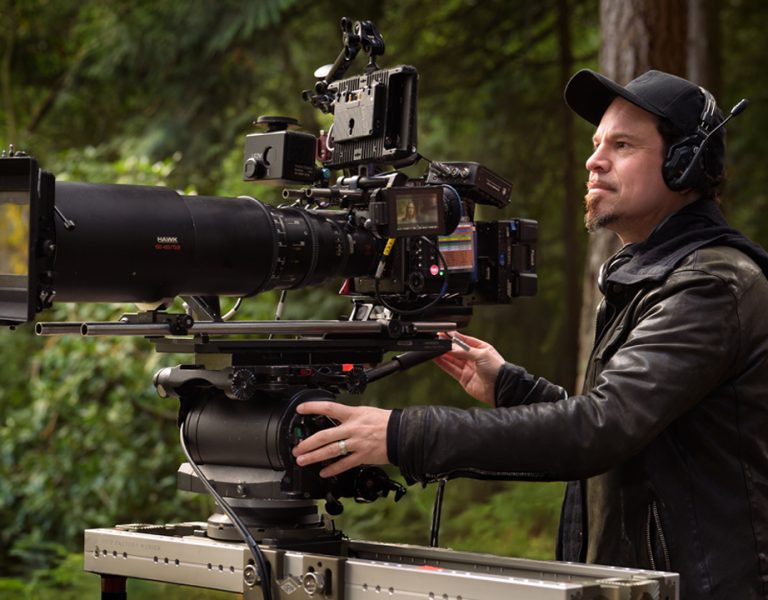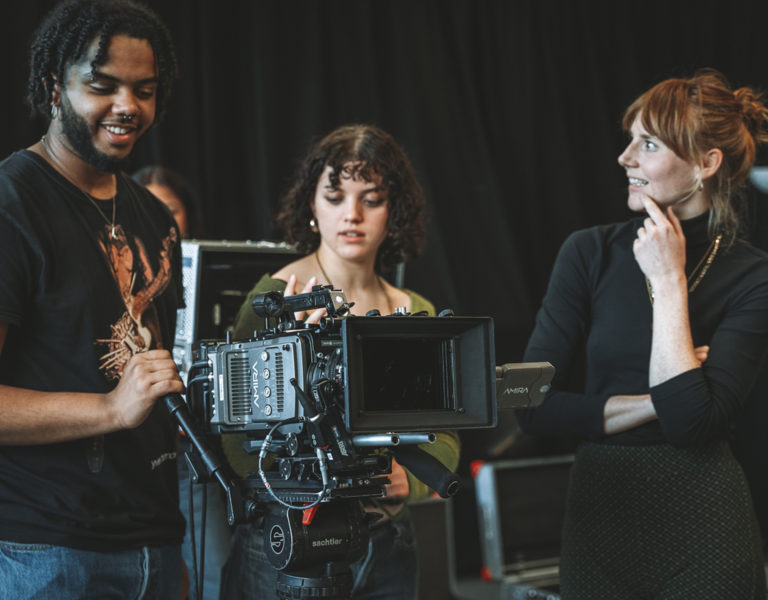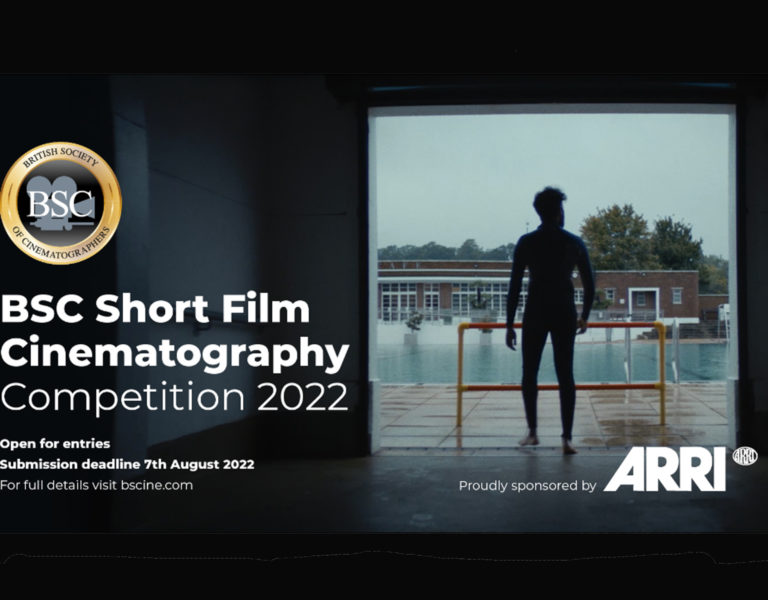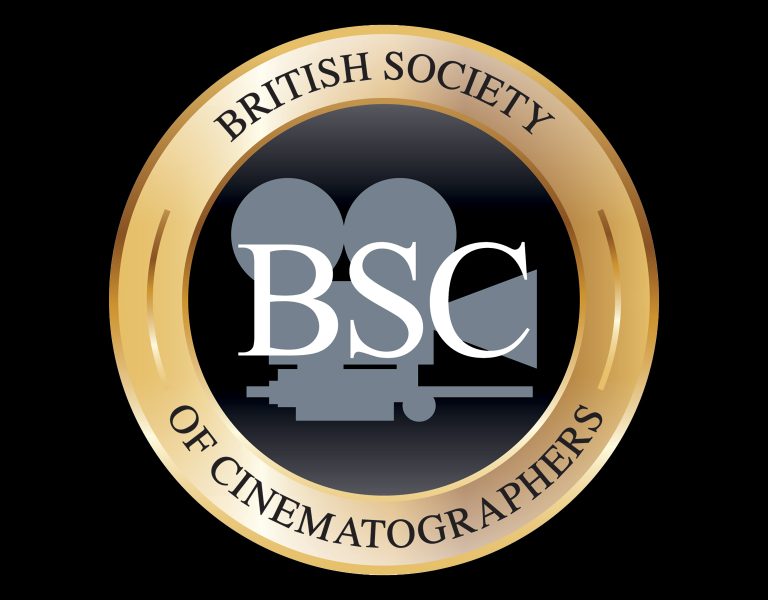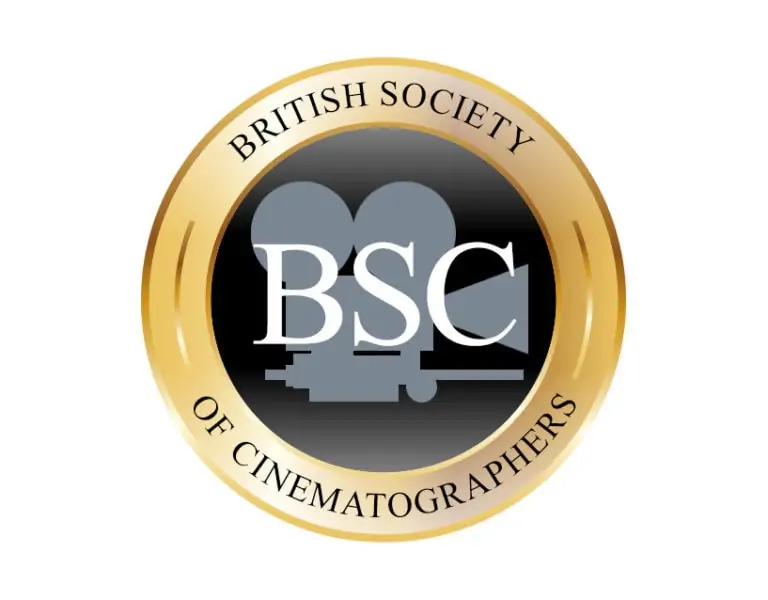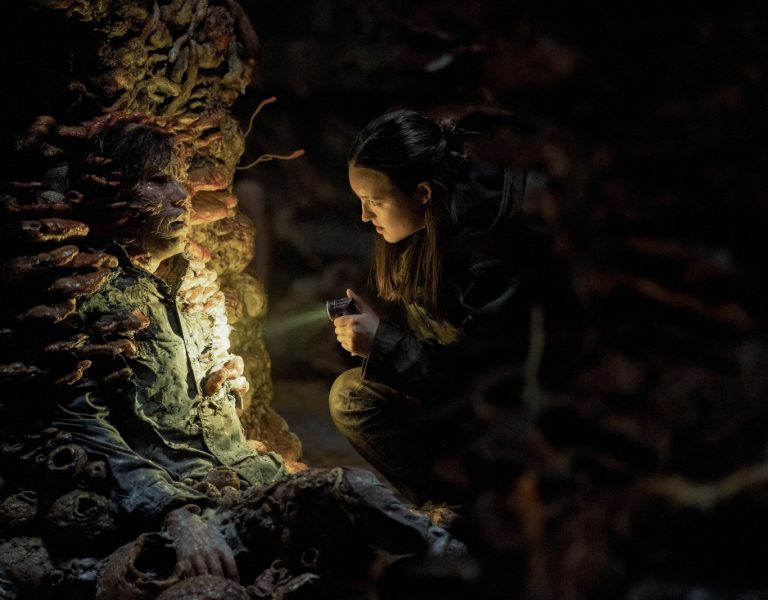Home » Features » Train to Gain »
ON COURSE FOR CAMERA CAREERS
In October 2022, the BSC and London Screen Academy ran the inaugural Cinematography and Camera Department Workshop for “early career creatives” as part of BSC Education.
The Cinematography and Camera Department Workshop was conceived two years ago by BSC president Christopher Ross and aimed at those from marginalised groups or without a clear route into the industry. Taking place over a weekend at the London Screen Academy (LSA)’s site in Highbury, the course was sponsored by Digital Orchard Foundation, ARRI, ARRI Rental, Panavision, Panalux, Movietech, MBS, and Warner Bros.
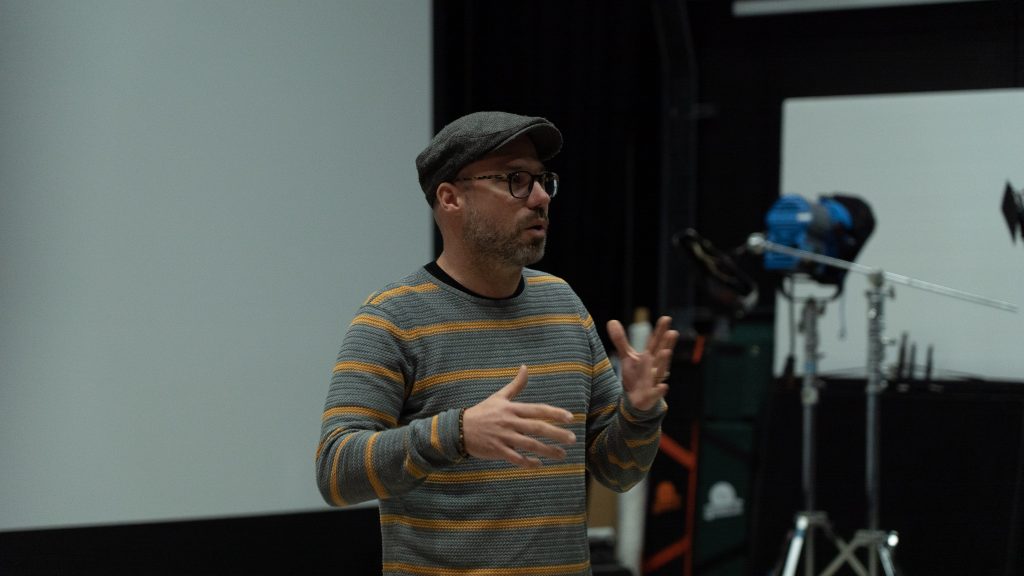
Following an Introduction to Cinematography from Oliver Stapleton BSC and Fabian Wagner ASC BSC, the 82 diverse students were divided into three cohorts to rotate around various workshops. These included an Introduction to Grip Technology by Ilana Garrard ACO Assoc. BSC and Stephen Wells, and an Introduction to Lighting Technology by Angus Hudson BSC and Nate Bauer.
“To actually see the lighting happening, rather than in a textbook or YouTube video – to be there and actually see it was very insightful,” says student Omar Alboukharey, who has worked for five years in the locations department and is looking to transition to camera. “I’m really glad to be here and get hands-on experience with some of the kit that they have… I think it’s probably the best weekend I’ve had in years!”
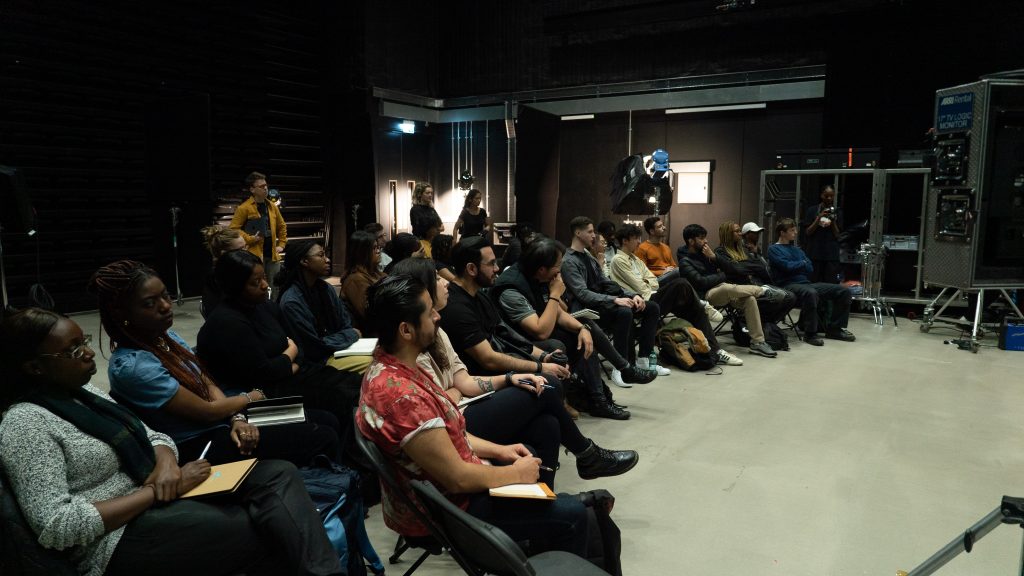
Catherine Goldschmidt led a Camera and Lens Technology workshop: “Thanks to Andy Cooper at Movietech, as well as some crucial on-the-day assistance from 1st AC Gabriel Hyman, NFTS cinematography student Hsien Yu ‘Sunshine’ Niu and Movietech prep-tech Zainab Mahmood, we were able to demonstrate a large range of spherical and anamorphic primes and zooms on both Super-35mm and large-format high-end digital cameras.”
This workshop was a favourite of Yassine Aksas, 19, a former LSA student. “I learnt a bunch of stuff in that camera lesson,” he says. “They set up four stations. We went to all the different parts, and it was in smaller groups. We got to go back and forth with questions, and it was really interactive.”
“Not only were the students exposed to new technology, but they also got some personal insight from myself and Deano into how a cinematographer’s choice of camera and lensing affects the filmmaking process as well as the final look of a film,” Goldschmidt continues.
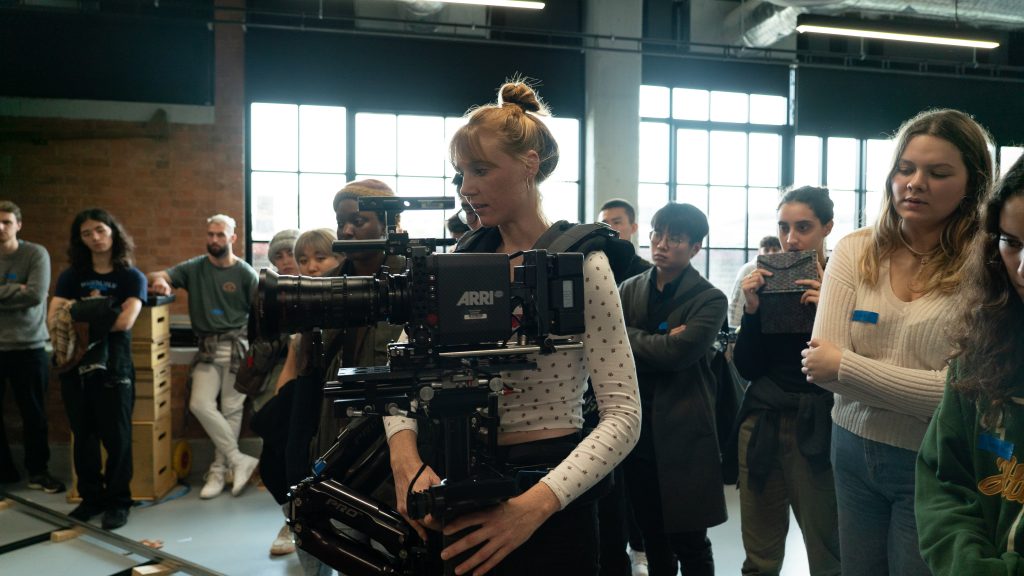
Tim Sidell BSC’s workshop was entitled Photographic Lighting Techniques. “I wanted to put across the idea of a sliding scale of technical competence and ‘correctness’ on one hand,” says Sidell, “and a more emotional or individual or idiosyncratic approach on the other hand, and encourage them to find where they want to be on that scale. We talked about lighting from upstage, from downstage, with some diffusion, controlling diffused light, looking at lighting levels and quite a lot about colour, how you manage colour.”
Volunteering to be lit and framed for Sidell’s demonstration was Alex Needham, a graduate with just a little industry experience so far. When Sidell later split the students into groups to light their own shots, Needham got to be a DP for half an hour. “It’s been really interesting,” they say. “The thing that’s really struck me is just being able to see and experience in person all of these things that I’ve been reading about for however long.” Aided by Nate Bauer and his crew, the groups had the use of various tungsten and LED fixtures, modifiers and CRLS reflectors, and an Alexa each. Needham adds, “Being able to have access to all of the equipment that was there and to really sculpt the shot that I wanted – I’ve not had an experience like that before.”
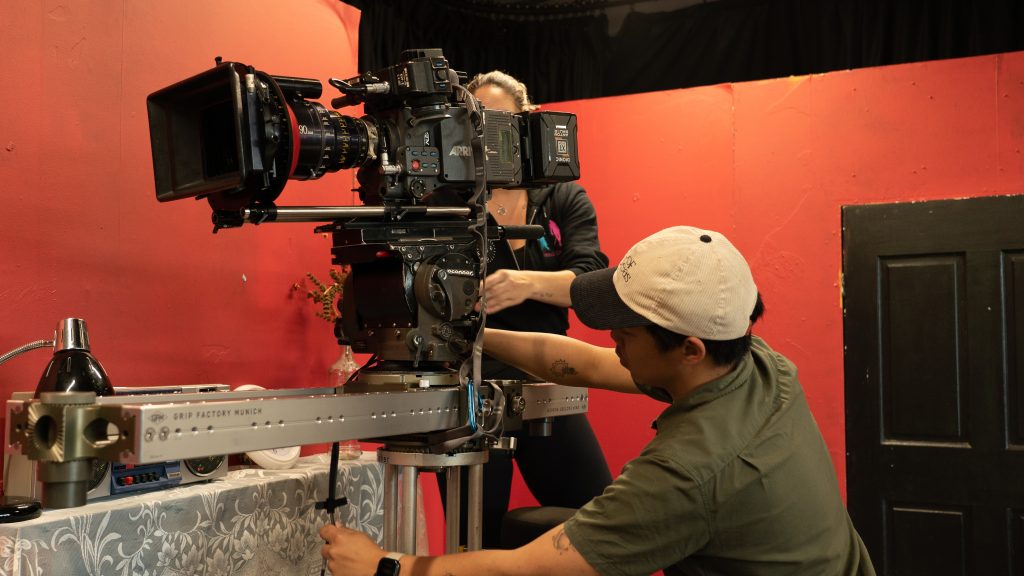
Laurie Rose BSC and Callum Just of Digital Orchard ran the DIT, Dailies Workflow and Post-Production session. “Our workshop today was based around a DOP and a DIT’s relationship,” says Rose, “an entry-level introduction to how we work together and the processes involved, so working from prep to shooting, and then talking about post a little bit.”
With the aid of a lit set and a camera feed running through a LUT box, Rose and Just demonstrated how they would collaborate on set to tweak the look of the image. Just remarks, “We hope that people have got an overview of what a DIT does, the basics of a workflow, how they interact with cinematographers, and what benefits they can bring to a cinematographer.”
“Everyone seems really engaged,” adds Rose. “The questions have been interesting and they’re coming from all sorts of levels.” These included technical queries about resolutions and checksum software, and more fundamental issues like aesthetics versus “the numbers”.
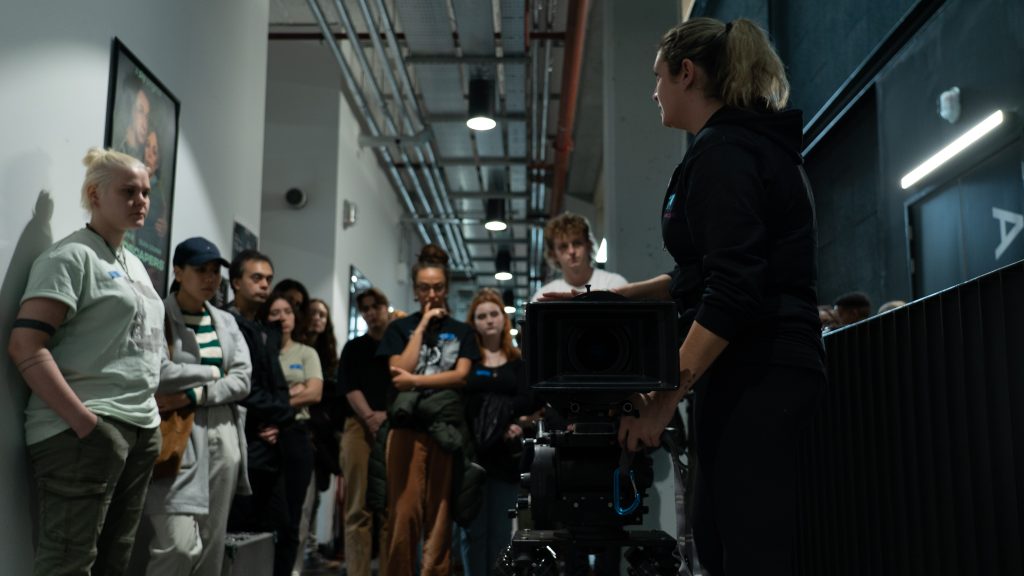
Gabriel Hyman ran the Introduction to Camera Assisting workshop with Dean Thompson and Alexandra Voikou. “We’ve tried to give them an introduction to the elements of shooting on digital cameras which they wouldn’t necessarily get if they were just to arrive on set as a very inexperienced trainee,” says Hyman. Split into small groups, students were shown up-close the components of a typical camera build, practiced setting up a head and legs, learnt how to handle and swing lenses, and got a chance to try slating.
The weekend closed with a panel discussion on careers in cinematography with Christopher Ross BSC, Rina Yang BSC, Jermaine Edwards and Korsshan Schlauer. The panellists described their own career paths and answered questions from the audience on topics like work/life balance, getting an agent, and how to find work.
Lalaine Saloma, a recent graduate of London South Bank University, described the course as “quite intense” and found it very useful for networking. “I feel like this was a once-in-a-lifetime opportunity,” she says. “It was really helpful as an aspiring DP.”


